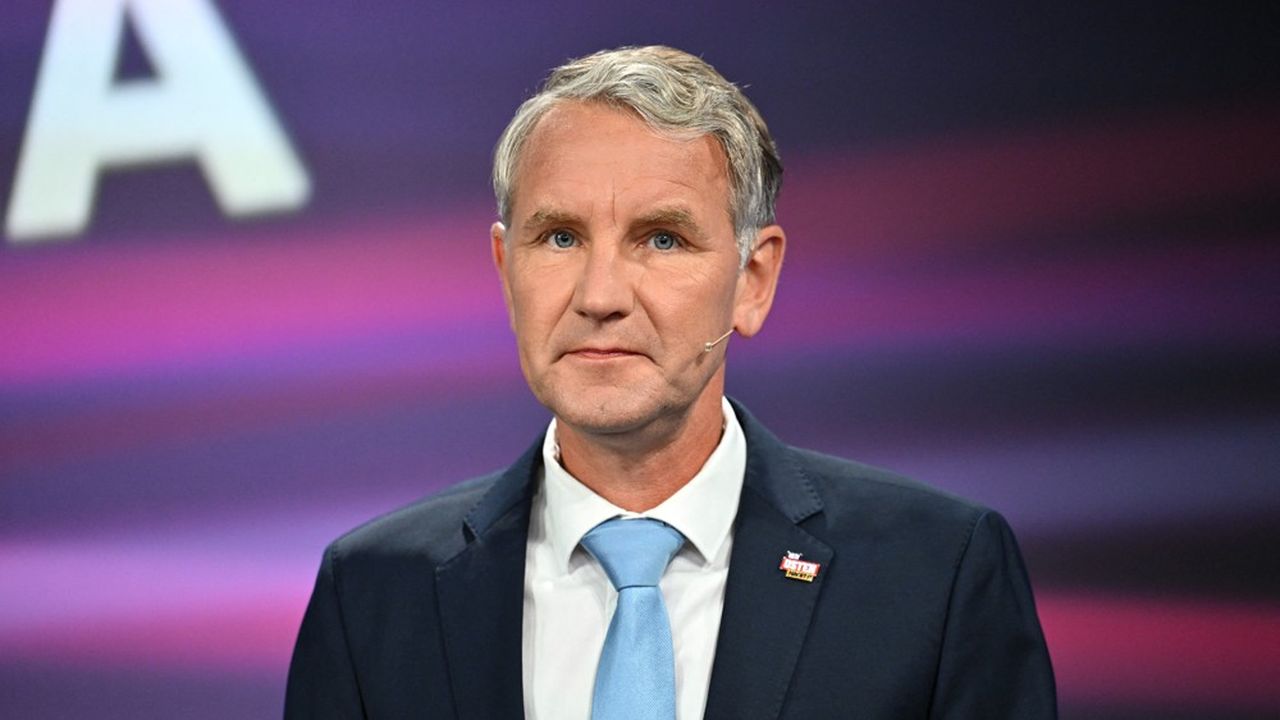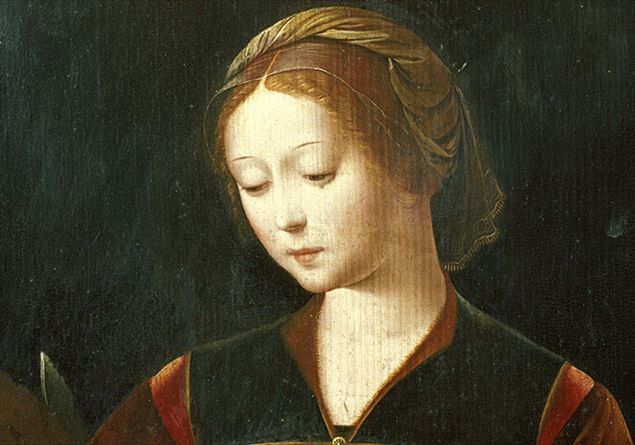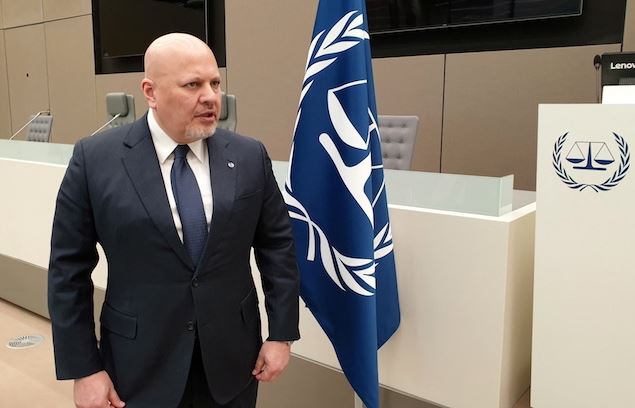
In France, he is unknown. But in Germany, he has just appeared on the cover of the major magazine “Der Spiegel” alongside Donald Trump and Marine Le Pen under the title: “How fascism is coming back”.
Björn Höcke, 52, is the head of the far-right Alternative for Germany (AfD) party list in Thuringia. A small rural region in Eastern Germany, which will elect its parliament this Sunday. On a media scale, it’s a bit like the head of the RN in Lorraine doing the 8 p.m. news on TF1.
Having entered politics in 2013, Björn Höcke is not part of the duo that leads the AfD at the national level, but he is just as well-known. For ten years, he has continued to attract attention for his racist, conspiratorial and revisionist remarks. Considered an extremist by the German intelligence services, he called the Holocaust memorial in Berlin a “monument of shame” in 2017 and called for a “180 degree turn” on the duty to remember the Nazi period.
His use of the SA slogan “Everything for Germany”, which is banned in Germany, earned him a fine of 30,000 euros. Earlier this year, an online petition demanding the removal of his civil rights was signed by 1.6 million people.
Needless to say, when the man arrives in town for a meeting, the police are on edge. In Bad Langensalza, for example, a small town of 17,000 inhabitants in Thuringia, the police monitor everyone who gets off the train. A backpack that is too big, a slightly suspicious look, and they are checked.
In the city centre, associations and the evangelical church organised a “counter-party” on the market square, while anti-fascist activists demonstrated around a hundred metres from the meeting, behind barriers.
A mixture of concepts and personal statements
On stage, Björn Höcke’s aura among supporters is palpable. It is striking to see how this sulphurous tribune juggles complicated concepts and personal statements. The former history teacher can discourse on what fascism and freedom of expression are, to come to compare the Federal Republic and its anti-Nazi laws to a dictatorship similar to the GDR. Born in the West, he knows how to refer to the experiences of East Germans. In the region, the AfD collects 30% of voting intentions.
Björn Höcke also talks about his wife and four children. He says that school was a nightmare for his eldest son for a long time, but that he recently found happiness. The teenager has started an apprenticeship. The manager then takes a short speech break, before saying: “roofer”. “When he comes home in the evening, he says to me, ‘Dad, I’m tired but I’m happy,'” explains Björn Höcke. The entire audience applauds loudly.
On the one hand, the tribune presents himself as a thinker, with a vision to save the country. On the other, he is a family man like any other. In Thuringia, posters show him with his hair blowing in the wind, riding an East German Simson moped, with the slogan “yes to youth”.
The enemies of always
Björn Höcke also talks about his old enemies: the media, state-funded associations, “gender politics” in schools, immigration and multiculturalism. On stage, he does not hesitate to psychoanalyze the anti-fascists who are demonstrating nearby. They do not love their country and “when you don’t love yourself, you have to go see a therapist,” he says.
However, his influence in the party has weakened in recent months. Close to Björn Höcke, the AfD’s leading candidate in the European elections, Maximilian Krah, had to resign from the party’s leadership in May, because his comments that an SS officer was not “automatically a criminal” led to a break with the RN.
“The Maximilian Krah scandal was very bad for Björn Höcke because he was very reluctant to take a position. The radical wing did not understand this attitude,” explains Maik Fielitz, a specialist in the extreme right at the Institute for Democracy and Civil Society in Jena. Radical in his speeches but very cautious tactically, Björn Höcke is a personality with many faces. And not just on stage.





